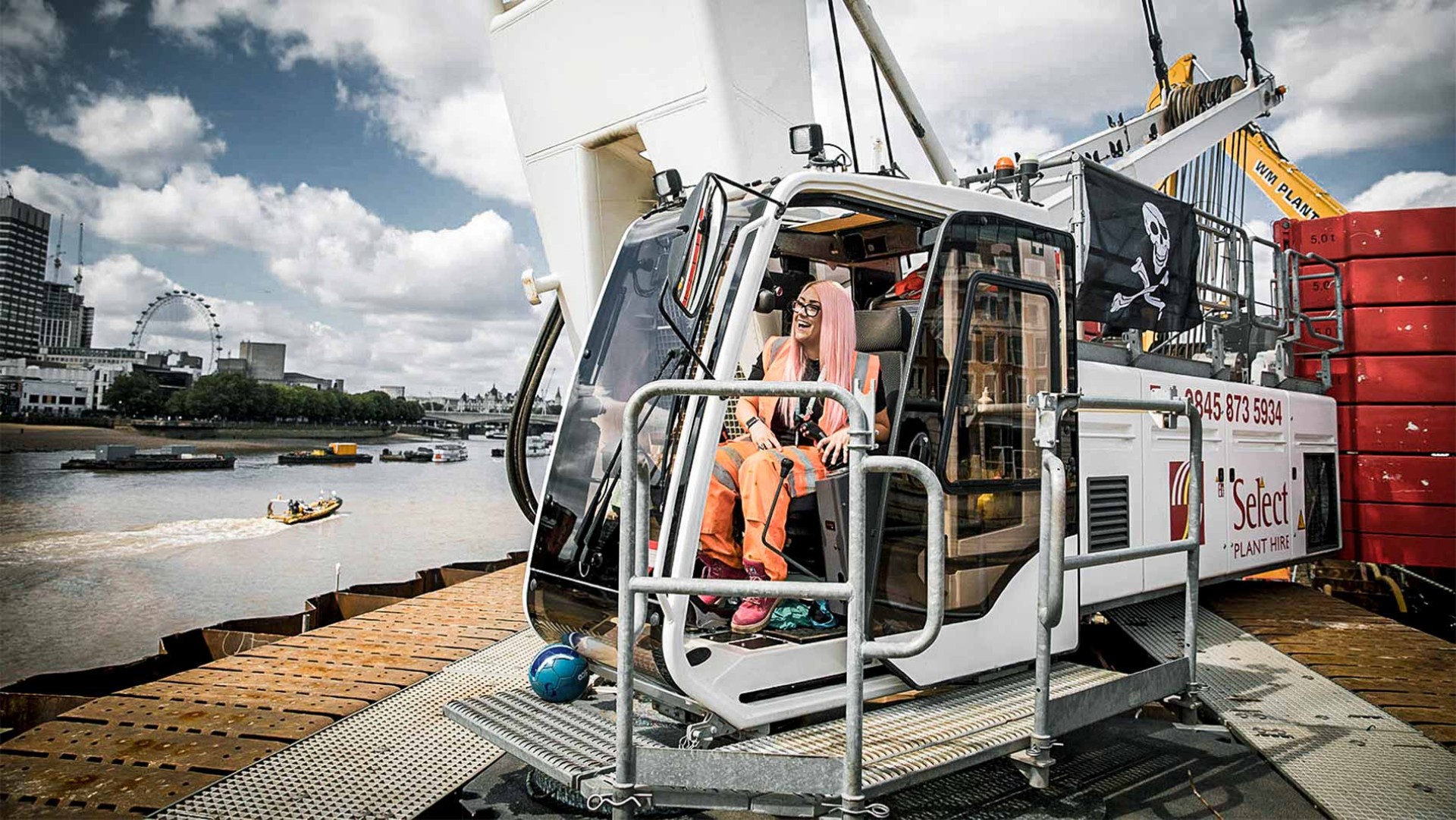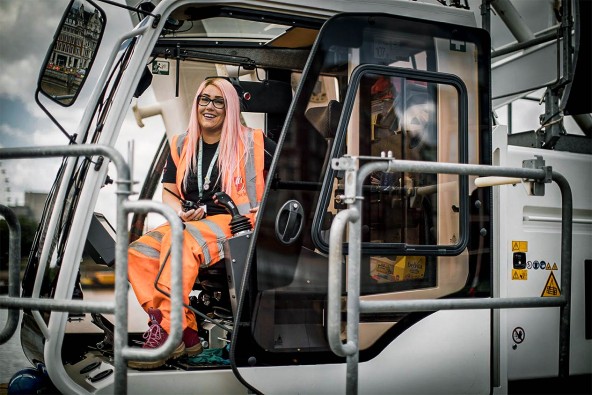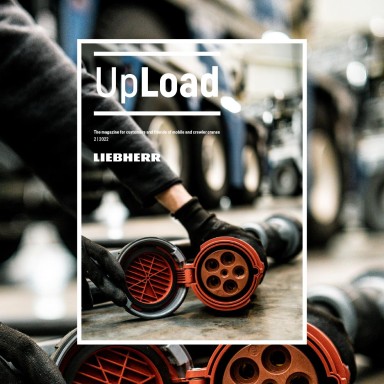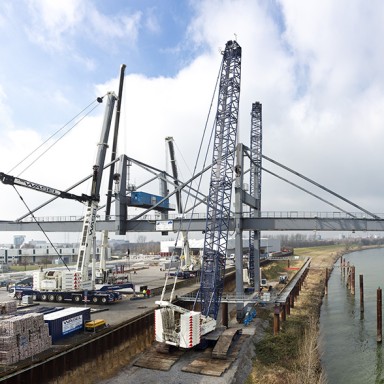
6 minutes | magazine 02/2022
Katie Cranes
Katie Kelleher is leaving her mark in London
Crane operator with a degree in literature.
The crane operator and lifting technician has been involved in Crossrail, now known as the Elizabeth line, Tideway, nick-named the super-sewer and the High Speed 2 railway. She did not train as a lifting technician and crane operator until she was 30 – as a way to change her life and find out whether she would be “really good or really terrible” at the job, which until then had seemed unimaginable. Since then, she has been involved in project delivery, and in raising awareness of job opportunities available within the sector, particularly for women and young adults.
There’s a reason for everything I do!
Anyone in the construction industry in Great Britain will have heard of Select Plant Hire. It is one of the largest and most versatile suppliers in the industry and has an enormous range of equipment, accommodation, and services in its portfolio – but until Katie Kelleher started work at the company, it had no female crane operators. And it had significantly less visibility on social media, at schools and colleges, at events and in industry working groups. After all, Katie Kelleher is not just interested in cranes, she wants to change the whole industry. “My aim is to encourage the next generation to take up lifting technology. That is why I speak on every available channel about my experiences, our projects, our industry – hoping to inspire, explain and change its public face.”
The young Londoner, who has an enormous number of followers on social media, where she uses the name Katie Cranes, had never even considered working as a crane operator. She studied literature at university and then had jobs in sales, advertising, the car trade and at a recruitment agency working on a trades and labour desk. “I was desperately looking for a way out of sales. As everybody in the building trade that I helped into a job was earning more money than I was, I flirted with the idea of applying. But what as?”
Training as a lifting technician was just the start. It was followed by licences to operate crawler and tower cranes, mobile cranes, among other things. She has now been in the industry for seven and a half years and is really shaking it up. “I have a wide range of duties – I recruit trainees, help to manage our LinkedIn site, give lectures and talks; I created a working group for female ‘workforce’ employees and act as a moderator for the “Women on the tools” group and much more.
You could say that Katie Kelleher is actually pursuing a sort of safety plan for the future. The next generation should be aware and be able to experience the fact that women can thrive at operating cranes, that there are forums and groups available to them and they have a strong connection to the industry. And, of course, the fact that all construction workers leave a legacy which enhances infrastructure and improves the lives of many people. “I have helped build a railway station which will help millions of people to travel, and I’ve been part of a team that has built a sewage tunnel which will make the whole of London cleaner. These projects and their effects will still exist well after I die and will remain part of the centre of London.”

To encourage young people into the building trade, however, she still has many things she wants to change, “the teams on site are already fantastic, the projects are great and my company is forward thinking and progressive.” Nevertheless, there is still a lot to do: “I always say that young people are not impressed by 60-70-hour weeks. And although the industry pays well, we must ensure that we provide the life balance that newcomers want. As an industry we must be more flexible with what we offer, show greater understanding for our workforce and be prepared to do things better. The next generation of young men and women do not necessarily want to work in the same way that we have done in the past.”
Katie Kelleher definitely believes that there is a will to change, but in some areas, women still face a fight to be accepted. And for herself, she thinks she is getting on fine: “Perhaps it’s because I feel able to share my views.” She is so passionate about the industry and enthused about her own career progression that she has learnt to ignore the negative comments that sometimes come her way on social media. “After all, there’s a good reason for everything I do. I simply feel so lucky to work for a great company which has a firm vision of progress and does everything to make mine and my colleagues lives better, whether that be upskilling or addressing working conditions. At Select we are keen to provide progressive long-term careers and high quality, standard-leading training - I love that!”
This article was published in the UpLoad magazine 02 | 2022.




Discover more:
katiecranes.com
instagram.com/katie_cranes
twitter.com/katie_cranes
linkedin.com/in/katiekelleher
Katie also has a vision of the future in terms of the fleet, where she is desperate for more unplugged cranes: “I love our 250 and 160 tonne cranes, they’re just so futuristic and pioneering. I’m proud to work for this company. We were the first ones in the UK to have unplugged cranes and we continue to invest in them. I think they are the future of construction sites in London – demand is already proving it.”
During her visit to Liebherr in Ehingen, the LTC 1050-3.1, a zero emissions hybrid mobile crane, also impressed her greatly. “Sustainability is becoming more and more important to the company and its customers. It’s all very exciting and I can hardly wait to see what the future of cranes has in store!”